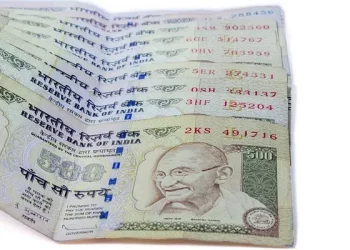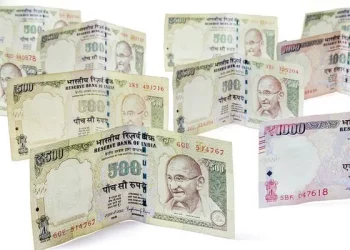Traveling to India, a country rich in culture and history, often prompts important financial decisions for visitors. One common question is whether to obtain Indian rupees (INR) before departure or to rely on currency exchange options available upon arrival. This decision can significantly impact your financial experience, affecting factors such as convenience, exchange rates, and transaction costs. This article explores the various aspects of obtaining Indian rupees prior to traveling, including the benefits, considerations, and practical advice for managing your finances while traveling in India.
Understanding Indian Currency
The Indian Rupee
The Indian rupee, abbreviated as INR, is the official currency of India. It is represented by the symbol “₹” and is subdivided into 100 paise. The currency is issued by the Reserve Bank of India (RBI) and is available in various denominations, including coins (1, 2, 5, and 10 rupees) and banknotes (10, 20, 50, 100, 200, 500, and 2000 rupees). The rupee’s value can fluctuate based on economic conditions, which can impact exchange rates.
Currency Exchange and Availability
Indian rupees can be obtained through several channels, including banks, currency exchange services, and ATMs. While currency exchange services and banks are widely available in major cities and tourist areas, availability may be limited in more remote locations. Understanding the options for acquiring rupees both before departure and upon arrival is essential for planning your finances effectively.
Advantages of Obtaining Rupees Before Traveling
Convenience and Planning
Obtaining Indian rupees before you travel can offer several conveniences. Having local currency on hand as soon as you arrive eliminates the need to seek out currency exchange services immediately. This can be particularly beneficial if you are arriving in a remote area or if you arrive outside of normal banking hours. With local currency already in your possession, you can handle initial expenses such as transportation, meals, and tips without delay.
Avoiding Initial Exchange Rate Fluctuations
By exchanging currency before departure, you can lock in the exchange rate offered by your bank or currency exchange service. This can protect you from fluctuations in the exchange rate that may occur upon arrival in India. It also allows you to compare rates and choose a more favorable rate before you travel, potentially saving money compared to exchange rates available at airports or local exchange services.
Budget Management
Having Indian rupees before your trip can assist in budgeting and managing your expenses more effectively. It provides a clearer understanding of your spending power and allows you to plan your budget in advance. This can help avoid overspending or financial stress during your trip.
Considerations When Obtaining Rupees Before Traveling
Exchange Rates and Fees
When exchanging currency before your trip, it is crucial to be aware of exchange rates and associated fees. Banks and currency exchange services may charge a fee or offer a less favorable rate compared to rates available at local exchange services in India. Comparing exchange rates and fees from different sources can help ensure you get the best value for your money.
Accessibility and Convenience
Obtaining a large amount of foreign currency before traveling can be inconvenient and may involve additional charges. Consider whether you will need a substantial amount of Indian rupees or if you can manage with a smaller amount and rely on other methods for obtaining additional currency as needed.
Safety and Security
Carrying a significant amount of cash can pose security risks. If you choose to obtain Indian rupees before traveling, ensure that you store the currency safely and securely. Consider using a travel wallet or money belt and avoid carrying excessive amounts of cash in easily accessible pockets.
Alternatives to Obtaining Rupees Before Traveling
Currency Exchange Upon Arrival
Currency exchange services are widely available at airports, banks, and currency exchange offices in India. This provides flexibility in obtaining local currency as needed. While exchange rates at airports may not always be the most favorable, they offer the convenience of immediate access to Indian rupees upon arrival.
Using ATMs
ATMs are a convenient option for obtaining Indian rupees while traveling. They are widely available in urban areas and major tourist destinations. Using an international debit or credit card to withdraw cash can provide competitive exchange rates and convenience. However, be mindful of potential foreign transaction fees and ATM withdrawal fees charged by your bank.
Credit and Debit Cards
Credit and debit cards are widely accepted in India, particularly in urban areas and tourist destinations. Using a card for transactions can be a convenient way to manage expenses without the need for large amounts of cash. However, ensure that your card is accepted and be aware of any foreign transaction fees that may apply.
See Also: Why the Indian Rupee Is Not Fully Convertible?
Practical Tips for Managing Currency While Traveling
Planning and Research
Before traveling, research the availability of currency exchange services and ATMs in your destination. Understanding where and how you can obtain Indian rupees will help you plan and manage your finances more effectively.
Carrying a Mix of Payment Options
It is advisable to carry a mix of payment options, including some Indian rupees, a credit or debit card, and possibly a small amount of US dollars or other major currencies. This provides flexibility in managing expenses and handling situations where certain payment methods may not be accepted.
Monitoring Exchange Rates
Keep track of exchange rates before and during your trip. This can help you make informed decisions about when and where to exchange currency and whether to use ATMs or currency exchange services.
Budgeting and Record-Keeping
Maintain a budget and keep track of your expenses to manage your finances effectively while traveling. Record-keeping can help you stay within your budget and avoid unexpected financial challenges.
Conclusion
Deciding whether to obtain Indian rupees before traveling to India involves weighing several factors, including convenience, exchange rates, and financial planning. While having local currency on hand upon arrival can offer benefits such as immediate access to funds and protection from exchange rate fluctuations, it also requires careful consideration of exchange rates, fees, and safety.
Exploring alternatives, such as currency exchange upon arrival, using ATMs, and utilizing credit and debit cards, can provide flexibility and convenience. Ultimately, the choice of whether to obtain Indian rupees before traveling should align with your financial preferences, travel plans, and comfort level. By understanding the options available and planning effectively, you can manage your finances efficiently and enjoy a smooth and enjoyable trip to India.
Related Topics:




























